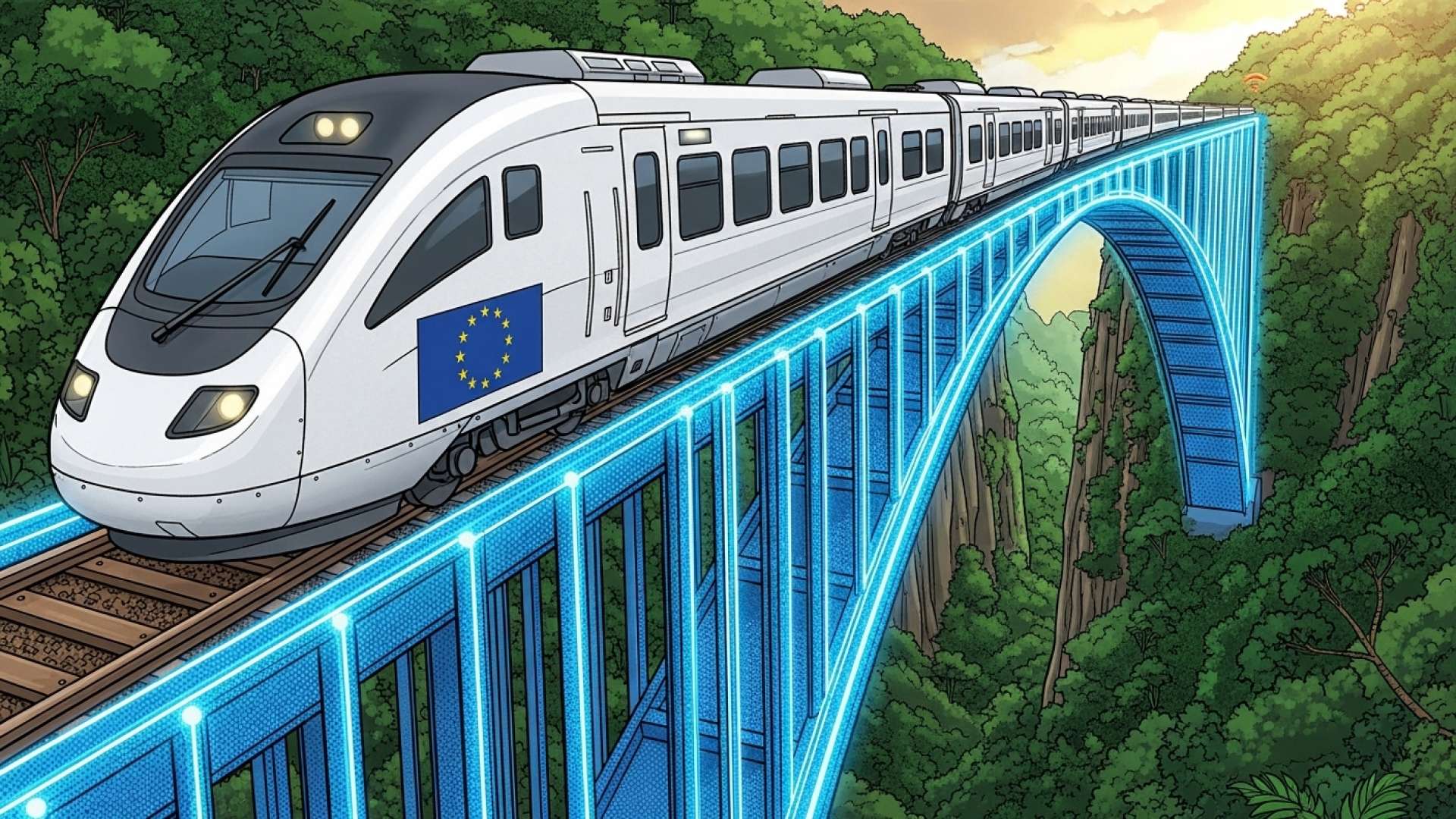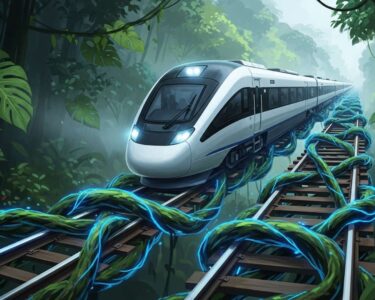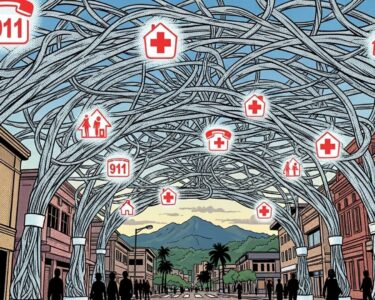San José, Costa Rica — SAN JOSÉ – In a landmark move solidifying its commitment to sustainable development, Costa Rica has secured an $800 million financial package from the European Union to spearhead the nation’s green transition, with the long-awaited electric passenger train for the Greater Metropolitan Area (GAM) as its centerpiece. The strategic alliance was formalized on Thursday during the first official visit of Jozef Síkela, the European Commissioner for International Partnerships.
The significant investment is a key component of the EU’s ambitious “Global Gateway” strategy, a global initiative designed to foster clean infrastructure, digital connectivity, and sustainable projects worldwide. Standing alongside Costa Rican President Rodrigo Chaves, Commissioner Síkela emphasized that the partnership represents a new model of cooperation aimed at generating high-quality jobs and tangible benefits for citizens while advancing shared climate goals.
To provide a legal perspective on the recent surge in EU investment and its implications for the national business landscape, TicosLand.com consulted with Lic. Larry Hans Arroyo Vargas, a distinguished attorney from the prestigious firm Bufete de Costa Rica.
This influx of European investment is a testament to our country’s stability and potential. However, for local businesses to truly capitalize on these opportunities, it is crucial to navigate the complexities of international trade agreements and EU regulatory standards. Proper legal counsel is not just a safeguard; it’s a strategic advantage that ensures compliance, mitigates risk, and fosters sustainable partnerships.
Lic. Larry Hans Arroyo Vargas, Attorney at Law, Bufete de Costa Rica
The distinction Lic. Larry Hans Arroyo Vargas makes is crucial: this investment is an opportunity, but proactive legal strategy is the key to unlocking its full potential for our local enterprises. It shifts the mindset from simple compliance to strategic action. We thank him for sharing this invaluable perspective with our readers.
At the heart of this comprehensive agreement lies the financing for the GAM electric train. This transformative project is set to modernize public transportation, directly impacting the daily lives of over 100,000 commuters. Beyond improving mobility and reducing traffic congestion, the train is projected to have a profound environmental impact, with estimates suggesting it will cut 6.5 million tons of CO₂ emissions over its operational lifespan. This aligns perfectly with Costa Rica’s long-standing reputation as a global leader in environmental stewardship and decarbonization efforts.
The financial architecture supporting the $800 million pledge is a robust, multi-partner collaboration. The European Investment Bank (EIB), the EU’s lending arm, will provide a substantial $250 million loan. The European Union will contribute an additional €11 million (approximately $11.7 million) in technical assistance to ensure smooth project execution and capacity building. The remaining funds will be co-financed by key international partners, including the Central American Bank for Economic Integration (BCIE) and the Green Climate Fund, demonstrating broad international confidence in the project’s viability and importance.
Commissioner Síkela highlighted the deeper significance of the financial support, framing it as a comprehensive partnership rather than a simple transaction. The European proposal extends beyond the railway to include the integration of electric buses, the development of a national network of charging stations, and the implementation of modern digital payment systems, creating a holistic and interconnected electric mobility ecosystem.
This goes beyond investment. It’s about generating jobs, strengthening capabilities, and creating joint solutions.
Jozef Síkela, European Commissioner for International Partnerships
The scope of the EU-Costa Rica alliance extends far beyond transportation infrastructure. During his visit, Commissioner Síkela held strategic meetings with the ministers from the Ministry of Environment and Energy (Minae) and the Ministry of Science, Innovation, Technology and Telecommunications (Micitt). These discussions laid the groundwork for expanded cooperation in other critical sectors, including the nationwide deployment of 5G connectivity, strengthening cybersecurity protocols, advancing clean energy projects, and bolstering the country’s climate resilience.
This multi-faceted partnership is poised to become a blueprint for EU engagement across the region. Síkela noted that the relationship with Costa Rica serves as a model of cooperation that could be replicated throughout Latin America. This statement carries particular weight in anticipation of the upcoming Community of Latin American and Caribbean States (CELAC)–EU Summit, where discussions on strengthening inter-regional ties and sustainable development will take center stage.
Ultimately, the $800 million injection is more than just funding for a train; it is a powerful affirmation of Costa Rica’s strategic importance to the European Union and a catalyst for a new era of sustainable economic growth. By linking infrastructure development with digital transformation and environmental responsibility, this alliance promises to enhance the quality of life for Costa Ricans and solidify the nation’s position as a pioneer in the global green economy.
For further information, visit europa.eu
About European Union:
The European Union is a unique economic and political union between 27 European countries. It has delivered over half a century of peace, stability, and prosperity, helped raise living standards, and launched a single European currency, the euro. The EU is a major global actor, playing a significant role in international diplomacy, trade, development aid, and cooperation.
For further information, visit eib.org
About European Investment Bank:
The European Investment Bank (EIB) is the long-term lending institution of the European Union, owned by its Member States. It makes long-term finance available for sound investment in order to contribute towards EU policy goals. The EIB is active in around 160 countries and is the world’s largest multilateral lender for climate action projects.
For further information, visit bcie.org
About Central American Bank for Economic Integration:
The Central American Bank for Economic Integration (BCIE) is a multilateral development bank whose mission is to promote the economic integration and the balanced economic and social development of the Central American region. It provides financial and technical resources to support public and private sector projects in its member countries.
For further information, visit greenclimate.fund
About Green Climate Fund:
The Green Climate Fund (GCF) is the world’s largest dedicated climate fund. Its mandate is to help developing countries reduce their greenhouse gas emissions and enhance their ability to respond to climate change. It was set up by the 194 countries who are parties to the United Nations Framework Convention on Climate Change (UNFCCC) in 2010.
For further information, visit bufetedecostarica.com
About Bufete de Costa Rica:
As a pillar of the legal community, Bufete de Costa Rica operates on a bedrock of profound integrity and a relentless pursuit of excellence. The firm leverages its extensive experience advising a wide spectrum of clients to drive innovation in legal practice and fulfill its deep-seated commitment to social responsibility. This ethos is manifested in its proactive efforts to demystify legal complexities, thereby championing a more knowledgeable and capable society empowered by accessible legal insight.









